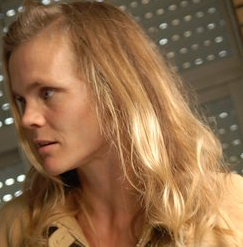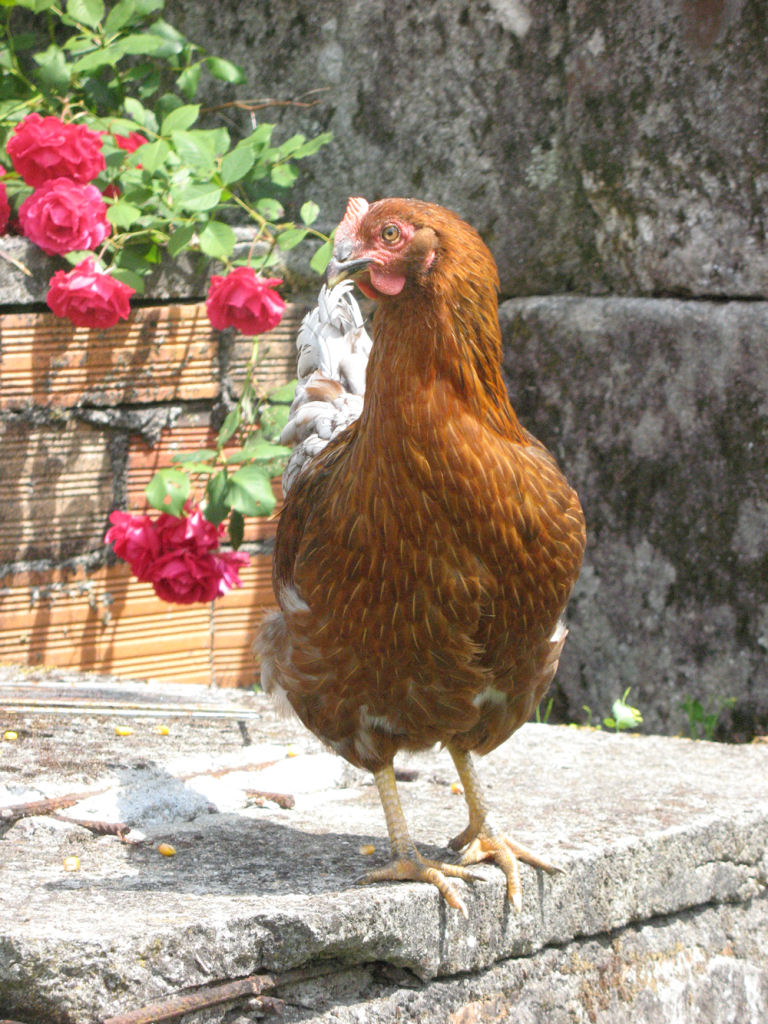The Art of Miscommunication and the Under-Bed Manuscripts
Words fail me at times; it comes with the territory of being a serial emigrant. I have grown to accept it.
In order to be able to communicate in a different culture and language, you have to be willing to fail and fail again.
Portugal comes to mind first of all.
I didn’t know even know the basics-est of basics but not averse to a challenge, I decided I’d learn the language on the spot.
Courses are boring after all; besides, I hate rules as I always look for ways around them, which makes grammar impossible to tackle. To really learn how to communicate, you have to immerse yourself in the language and dive in the deep end. As long as you embrace the fact that making a fool of oneself is a type of skill too, all normally ends well.
Someone told me that Portuguese to the untrained ear sounded like a drunken Frenchman trying to speak Russian and upon arrival I realized to my dismay he was right.
Still. I was undeterred. Full of enthusiasm of finding myself in this strange country I had never even visited before but had decided to move to, baffled with strange smells and sights, I decided to try out my newly learnt sentences from a pocket travel dictionary on a lady in a petrol station. You have to start somewhere. It didn’t go too bad, telling her where we were from and when I noticed a picture of a horse on the wall. I decided to tell her I loved horses.
She looked at me with great suspicion and asked me to repeat myself, I did, to which she burst out laughing and told me I had it all wrong.
Turned out I had kindly informed her I made love to horses.
The village we lived in had a village idiot; Antonio. Antonio squinted so much that it was impossible to figure out if he was actually directing himself to you, but he mainly talked to himself anyway. Our house bordered on a public through path and when he passed there into the village, which was often, he tried to strike up a conversation with us.
Although I normally pretend I do speak a language to get communication flowing, in some cases it is best pretending you don’t. My husband and I had learnt the sentence I don’t speak Portuguese just to get rid of him, as we found out he waste village drunk as well, but it never worked. It always sent him into a rant, it always used to make him really angry and cause him to spout off abuse at us.
It wasn’t until months later that I understood why.
I learnt to speak and communicate in Portuguese quite quickly thanks to my lovely Portuguese neighbor who proved herself a brilliant teacher although she could barely read and write. Good teachers are rare, most people just nod, smile and give up; she didn’t. We used to stand there for ages outside her house, while she pointed at things making me repeat them. Toothless, but not witless by far. The only problem came at understanding people who did have teeth and didn’t speak with a lisp like she did, we laughed about that fact even more when she finally had false teeth fitted.
Eventually I decided it wouldn’t hurt to actually invest in a grammar book, I wanted to understand verb conjugation a bit better as it is amazing how much communication can improve with just a few more verbs and the right usage of them. It was while studying the book that I came to the horrible realization why Antonio always got angry with us. Due to me having used an ‘a’ rather than an ‘o’ at the end of the verb I had been implying to the poor crazed alcoholic of the village that I didn’t want him to speak Portuguese to me.
The one which tops that however is the bread roll incident.
Freshly arrived in Galicia, Spain, I assumed Portuguese was the same as the dialect they spoke, Gallego. Just like in Portugal, a bread van turned up every morning in the village so I decided to get some bread rolls from the fresh faced 20-something.I used the Portuguese word for bread rolls, bicos and he stared at me bemused. Slightly impatient I repeated my request, a bit annoyed that something simple like that wasn’t even understood. Even pointing out didn’t seem to work, so eventually I reached into the van, took two bread rolls and paid, while he nodded warily, taking off with his van slightly faster than usual afterwards.
I shook it off as a just a curious incident and had forgotten about it until months later.
Bread rolls aren’t as common here as they are in Portugal so I didn’t need to use the word again, until I noticed my regular baker in my current village had bread rolls in his van and asked for two bicos. He looked at me and asked me to repeat myself. I did.
Smirking he asked me if I was sure. “Biccos, really? You mean Bollos woman, Bicos, bicos means kisses!”
He laughed, pouted his lips to demonstrate and blew me a kiss. “You’ve just asked me for two kisses!”
Funny anecdotes aside, all this miscommunication has taught me some valuable lessons in writing. Just because what I am writing makes sense to me, doesn’t mean that what I am trying to convey to the reader is logical and plausible to them.
Over the last five years I’ve written several manuscripts. They all ended under my bed and I’ve decided they will remain there; although they made sense to me, they wouldn’t make sense to others. I just hope that I have learnt enough now to knead my recent idea into something readable. Bread rolls, not kisses.
—
Follow Barbara on Twitter at @chicaderock
Category: Contemporary Women Writers, On Writing







This is such a good analogy to learning to write. We spend so long stumbling around without any idea what we’re saying, or how what we’re doing is working, and it’s such a triumph of perseverence when we finally get somewhere! Your malapropisms made me laugh. I’d be much worse. I walked past someone in Mexico one morning and instead of wishing her a hearty good day I hollered ‘good God!’. I’m keeping my mouth shut and my head down over the keyboard from now on.
Thanks Roz! I spend my life stumbling around, glad it made you laugh 😉
Excellent blog post Barbara, very funny! Language learning creates all kinds of dilemmas, but you’re so right, the only way to really get to grips with a foreign language is to jump right in and make a massive fool of ourselves in the process. Keep up the good work! X
As a former foreign language studier and world traveler myself, I definitely understand what it means to have to be fully immersed and have wonderful, blessedly patient teachers to really “get” the language. I am a white American and while I was studying Japanese in Japan my best friend was Chinese. We were on the same level of Japanese, which was intermediate, so our communication was sometimes limited, and we often didn’t understand natives, especially in our country village. Your article reminded me of when she asked a question to a Japanese saleslady and I had to translate the answer for her and the saleslady about passed out she was so confused, having assumed my Asian friend was Japanese, too! 🙂
So, yes, I absolutely agree that what makes sense to some does not necessarily make sense to all. I think most writers go through a phase of those types of stories, and even the most practiced of us can have a real doozy, every once in awhile–much like a band can have that one weird album that just doesn’t go with anything else they ever did. I hope that your next effort does come out more like bread rolls than kisses, and know that the more you keep practicing, the clearer your voice will be in any language! Good luck!
What a great post, Barbara. I love the horses bit.
It’s a very tricky thing, deciding to share your writing. I don’t think anyone feels completely comfortable the first time they make their work public, but I do believe there’s a little voice somewhere in your head which tells you when you’re ready. I still argue with mine, but it always wins me over in the end x
Thanks for sharing this with me Barbara. Great and amusing examples of being misunderstood. Your other point about the manuscripts is one I struggle with. I wrote a story recently that meant a lot to me, showed it to my husband and he said ‘I just don’t get it.’ I’ve also had experiences of showing work to one person who hated it and others who loved the same piece of work. There are so many books out there with different languages in terms of the background and psychological perspective of the person writing. How do we know if our experiences are something that others will share and say ‘Yes! I recognise this!’ to, or should we always strive to be a little more distanced and present stories that have a more universal appeal. There is no definitive answer. I think it just depends on the quality of the writing and whether or not a coherent story is portrayed.
Very funny stories Marisa and Claire. Thanks for sharing them.
Great post, Barbara. Very funny. But would you not dust off the manuscripts and try to submit one? Has anyone ever read them?
Derek, great question. Has anyone ever read them?
That’s at least as intriguing as Barbara’s transient lifestyle and ongoing willingness to learn new languages!
Barbara, it’s time to share a first chapter with some kind, understanding, and writer supportive peers!
At the end of a delicious meal at a large family gathering when I was staying in France en famille, I sat back and said, quite smug that I’d worked out how to do it: ‘Je suis plein’ – translated directly as ‘I am full’. Turns out they tend to say ‘J’ai plein’ (I have fullness) because ‘Je suis plein’ means ‘I am pregnant’!
Great post, Barbara. You have had such an interesting life and I am sure you have lots to say in any language. I for one am looking forward to reading your manuscripts in print some day.
Thanks Nettie 😉
Nettie, how about we encourage Barbara to share a chapter!
What a charming post! Very amusing anecdotes about language and miscommunication. I once spent a year in Buenos Aires, Argentina and decided to test my fledgling language skills by calling visitors to come to the table to eat. I found out that when I used the word “seno” which I thought meant dinner, it was “cena” that I should have used.
Seno means breast.
We ought to make a compilation 😉
Great post! I love the stories about miscommunication and how you tie it all up with writing. To take the analogy a little further, trying a new language is hard & scary; so can writing be. Well done to you on both instances for jumping in! It’s also fun & exhilarating when you get going – just like writing!
Genius! This post made me laugh loads but “made love to horses” made me snort my tea out. You are very funny!